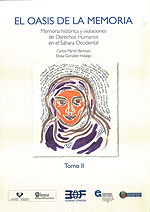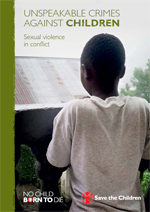RECOMMENDATIONS
More recomendations
-

Flames. The impact of self-immolations on Tibetans in exile
This audiovisual, which is directed and produced by Namuss Films with the support of ICIP, analyses political and social consequences of the wave of self-immolations that is taking place in Tibet.
Since the first self-immolation in Tibet took place in 2009, this new way of protesting has opened up a new chapter in the conflict with China. The substantive increase in the number of Tibetans who set themselves on fire as a form of protest is also questioning many of the premises with which the Tibetan community in exile aims to find a peaceful solution to the dispute.
The audiovisual is part of a larger project by Namuss Films, supported by ICIP, on the Tibetan conflict and more material will be released in the upcoming months.
S.P.
-

Women, War & Peace
http://www.peaceisloud.org/wwp.html
Women's mobilization in civil society is key to ending violence and conflict. With this in mind, Women, War & Peace, a new five-part documentary series, aims to "challenge the conventional wisdom about war", by looking at war through women's eyes.
Rather than the oh-so-familiar footage of male soldiers, guns and ammunition Women, War & Peace shows us how women play important roles as witnesses, survivors, peace activists, political negotiators, advocates for justice, and heads of state, in countries affected by violent conflict (including Bosnia, Liberia, Afghanistan and Colombia).
The five films, which have been premiered on public television in North America, place women at the center of a discourse about global security, thereby offering a critically important perspective on war today.
Visit womenwarandpeace.org to learn more about the documentary series and for a "screening kit", which includes discussion material in Arabic, English, French and Spanish, as well as region-specific resources and interviews with leading activists, including Nobel Laureate Leymah Gbowee.
In short, a great new tool to foster education, inspiration, discussion and advocacy.L.v.T.
-

Carlos Martín Beristain and Eloísa González Hidalgo. El Oasis de la Memoria: memoria Histórica y Violaciones de Derechos en el Sáhara Occidental. Bilbao: Hegoa, 2012. (2 volumes)
http://publicaciones.hegoa.ehu.es/publications/281
El Oasis de la Memoria is a report about human rights violations suffered by the population of Western Sahara. The report, based on the declarations of 261 victims, discusses issues of historical memory and human rights from the victim's perspective.
The research has been an opportunity to rescue memories and to offer an in-depth examination of the experiences of violence in order to transform pain into something useful for the understanding and appreciation of one's experience. The methodology used is a combination of that of a truth commission and a psychosocial approach centered on victims' experiences. The authors, recognizing that the support by the local people and organizations of Western Sahara has been of key importance, dedicate their report to the victims and surviving Saharawi people.
The report is presented in two volumes. The first volume consists of an analysis of human rights violations, focussing on individual and collective cases during the period 1975-present. This first volume also highlights the way in which violence was inflicted upon the Saharawi people and the mechanisms that made such violence possible. In the second volume the consequences of human rights violations and their impact on different aspects of life (family life, childhood, etc.) are commented upon, as well as the way in which the Saharawi people have dealt with these extreme human rights violations. Moreover, it collects the demands for justice, truth and reparations expressed in the testimonies. The report ends with an epilogue which analizes the agenda of conflict transformation in Western Sahara from a human rights perspective.
E.G.
-

Unspeakable crimes against children
http://www.savethechildren.org.uk/sites/default/files/images/Unspeakable_Crimes_Against_Children.pdf
A recent report by Save the Children, entitled "Unspeakable crimes against children. Sexual violence in Conflict", warns that children make up the majority of victims of sexual violence in many conflict and post-conflict zones and asks the G8 to take actions, giving concrete examples of how they can help children who are affected.
The report, which was released at the time when G8 foreign ministers met in London with the British foreign secretary, is particularly interesting because of their new figures and testimonies. It shows that despite the difficulties at hand, solutions are available. And it is about time the international community starts recognizing this, because while sexual violence disproportionately affects children, governments are failing to take seriously the scale of sexual abuse against children in conflict.
Another interesting report about ways in which the G8 could change and save children's lives has been published by War Child: "An unwanted truth. Shining a Spotlight on Sexual Violence against Children in Conflict".
L.v.T.